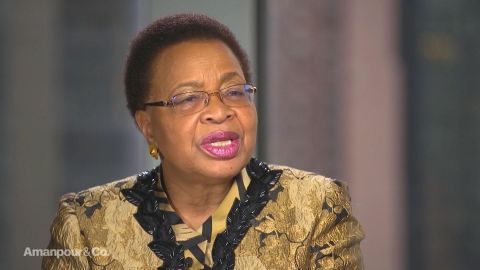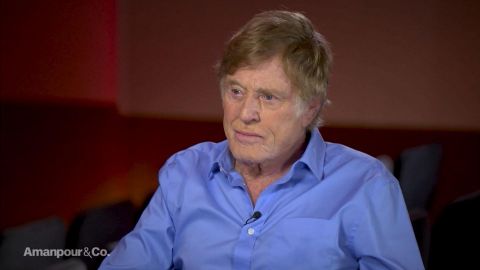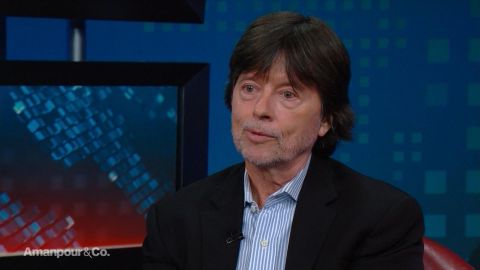Read Transcript EXPAND
CHRISTIANE AMANPOUR: There’s such – a lot of existential questions right now about what does the world have for me? What am I going to do? I mean part of it is your non-acting life, and that’s about the climate and the environment. And you are really dedicated to that, you’ve been to the United Nations, you’ve tried very hard to move the world along on this, particularly your own country where the current government sort of denies the seriousness of climate change. Tell me about what you do in your personal and public life to move this along?
ROBERT REDFORD, ACTOR/FILMMAKER: Well I think – I think you have to look at where it all started, and for me it started when I was a kid growing up in Los Angeles. And a the end of the second World War, it was a – it was a wonderful city to me. And then once the war ended and money came back into the picture, things changed. And suddenly there was development out of control and they had green spaces that were suddenly wiped out by buildings and so forth. And where Santa Monica Boulevard had a trolley cart going down the center of it, it was gone, suddenly was a freeway. And I thought well wait a minute, what – what’s going on? They’re – in order to progress, they’re wiping out something really valuable.
AMANPOUR: Another thing that is a dark cloud around all of us right now is this notion of where is truth, this notion of fake news that has become, because of President Trump, now a (inaudible) call for some despicable people and undemocratic dictators all around the world, who when they don’t like something, accuse the press of, you know, peddling fake news. Again, you know, it just so happens that one of the greatest films you made, “All the President’s Men”, is all about investigating, holding accountable and looking for the truth. What do you think about “All the President’s Men” and having done that film?
REDFORD: I think we’re in a similar spot now. I think that the powers that’s out there that’s taken us to the brink where you no longer know what the truth is, and so if you don’t know what the truth is, how can you talk about what is truthful or not? So I think we’re right at that brink and I guess I see it metaphorically as it used to be that two sides would come together, they were across the aisle so to speak. They would cross the aisle to work together to teach something that would benefit the public. And now there’s no longer – it’s no longer an aisle to be crossed, it’s a moat. There’s a gigantic chasm between two points of view, and they’re not crossing to work with each other, they’re getting ideologically rigid and stuck. And we’re the losers, and I think that’s got to change.
About This Episode EXPAND
Christiane Amanpour interviews Graça Machel, Nelson Mandela’s widow; and actor Robert Redford. Walter Isaacson interviews Ken Burns Executive Producer of “The Mayo Clinic.”
LEARN MORE


